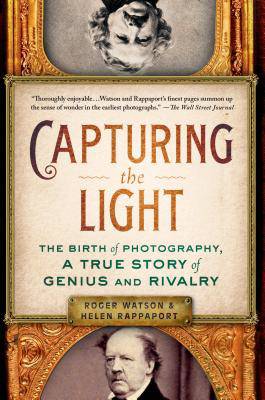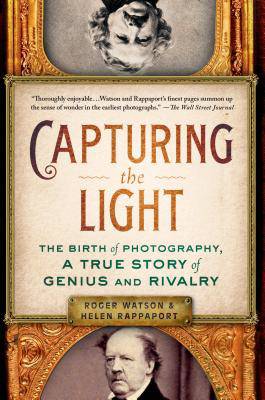
- Retrait gratuit dans votre magasin Club
- 7.000.000 titres dans notre catalogue
- Payer en toute sécurité
- Toujours un magasin près de chez vous
- Retrait gratuit dans votre magasin Club
- 7.000.0000 titres dans notre catalogue
- Payer en toute sécurité
- Toujours un magasin près de chez vous
Description
An intimate look at the journeys of two men--a gentleman scientist and a visionary artist--as they struggled to capture the world around them, and in the process invented modern photography
During the 1830s, in an atmosphere of intense scientific enquiry fostered by the industrial revolution, two quite different men--one in France, one in England--developed their own dramatically different photographic processes in total ignorance of each other's work. These two lone geniuses--Henry Fox Talbot in the seclusion of his English country estate at Lacock Abbey and Louis Daguerre in the heart of post-revolutionary Paris--through diligence, disappointment and sheer hard work overcame extraordinary odds to achieve the one thing man had for centuries been trying to do--to solve the ancient puzzle of how to capture the light and in so doing make nature 'paint its own portrait'. With the creation of their two radically different processes--the Daguerreotype and the Talbotype--these two giants of early photography changed the world and how we see it.Drawing on a wide range of original, contemporary sources and featuring plates in colour, sepia and black and white, many of them rare or previously unseen, Capturing the Light by Roger Watson and Helen Rappaport charts an extraordinary tale of genius, rivalry and human resourcefulness in the quest to produce the world's first photograph.
Spécifications
Parties prenantes
- Auteur(s) :
- Editeur:
Contenu
- Nombre de pages :
- 320
- Langue:
- Anglais
Caractéristiques
- EAN:
- 9781250061416
- Date de parution :
- 20-01-15
- Format:
- Livre broché
- Format numérique:
- Trade paperback (VS)
- Dimensions :
- 137 mm x 213 mm
- Poids :
- 385 g

Les avis
Nous publions uniquement les avis qui respectent les conditions requises. Consultez nos conditions pour les avis.






